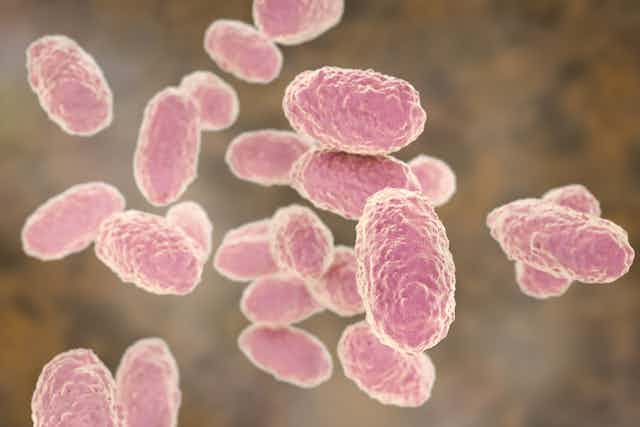The influenza virus circulates every year and has the potential to turn into global epidemics. Flu virus infections affect people from all age groups and causes mild to severe illness. But newborns and babies younger than six months are at particular risk for serious disease.
Pregnant women are also increasingly susceptible to catching severe flu in their second and third trimesters and in the first six months after giving birth. Because of this, pregnant women have been identified as a priority group to receive the flu vaccine.
In addition to pregnant women, elderly people, people with chronic diseases or those who have HIV are also prioritised to get it. People with HIV have a high risk of getting severe flu because their immune systems are compromised by the virus. The flu vaccine is normally administered in South Africa from February until the end of the winter season in August.
But the challenge is that babies younger than six months old are unable to get the flu vaccine. This leaves them vulnerable. Global studies on childhood deaths show that almost 1 million children younger than five die every year from pneumonia and that 45% of all deaths in children under the age of five occur in the first month of life. In South Africa, the neonatal death rate sits at 14.6/ 1000 live births.
We set out to establish whether giving mothers the flu vaccine while they were pregnant could protect them from getting the flu and protect their babies in this first six month period.
We had two important findings. Our study primarily found that giving pregnant mothers the flu vaccine protected their babies from getting the flu in the first six months of life – before they were eligible to get the vaccine themselves. The mothers themselves were also protected from getting sick from flu.
A secondary analysis of the findings has shown that when the flu vaccine was administered to pregnant women they were also protected from developing whooping cough.
A double hit
Research shows that children under the age of six months have the highest burden of respiratory diseases such as influenza and whooping cough, known as pertussis.
Pertussis is a highly contagious respiratory disease caused by the bacterium Bordetella pertussis. Anyone can get pertussis, which is spread from person to person when an infected person coughs or sneezes. But some people face a higher risk of infection and severe disease. Those with weakened immune systems and chronic lung disease are at higher risk. For babies younger than six months, the disease poses the greatest risk because they are more likely to develop complications and die.
The pertussis vaccine is part of the routine vaccination schedule for all babies in the country. The vaccine, which is administered globally, has significantly reduced the case load of whooping cough.
The challenge is that although babies start their pertussis vaccinations when they are six weeks old, they are only protected against the disease after their third dose of the vaccine when they are three months old. This means that they are particularly vulnerable. Protecting them is a priority in many developing countries, including South Africa.
In our randomised clinical trial we administered the flu vaccine and a placebo to two groups of women. When they received the vaccine they were in their late second or third pregnancy trimester.
Our study proved that the women who received the influenza vaccine had less pertussis infections. But the protection they got from the vaccine was indirect. It stopped them from getting influenza which in turn protected them from getting a co-infection of pertussis.
An alternative
Our study shows that there are significant benefits to pregnant women being given the influenza vaccine. But there is still a huge gap in the number of people being vaccinated in the country.
Although the government has increased the number of vaccines made available through the public health system over the past few years, the number being administered is still wholly inadequate.
Influenza vaccination should nonetheless be a priority for all high risk groups.

